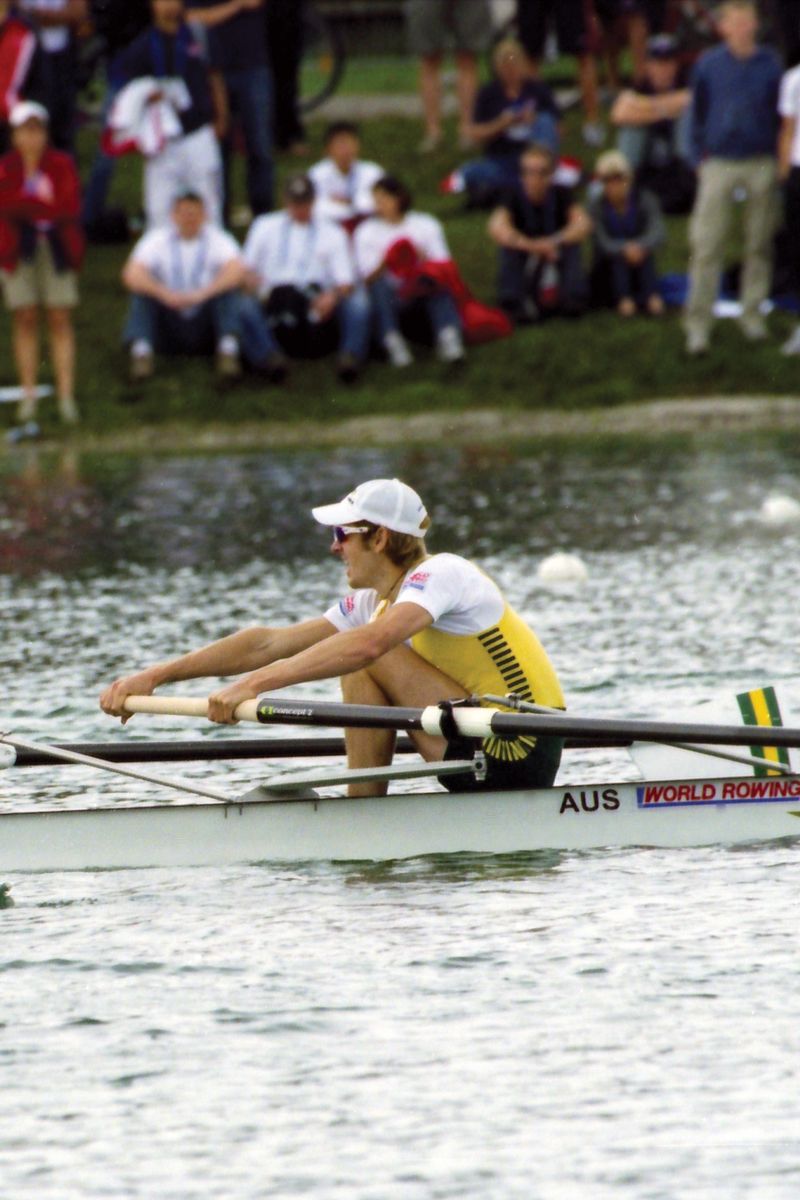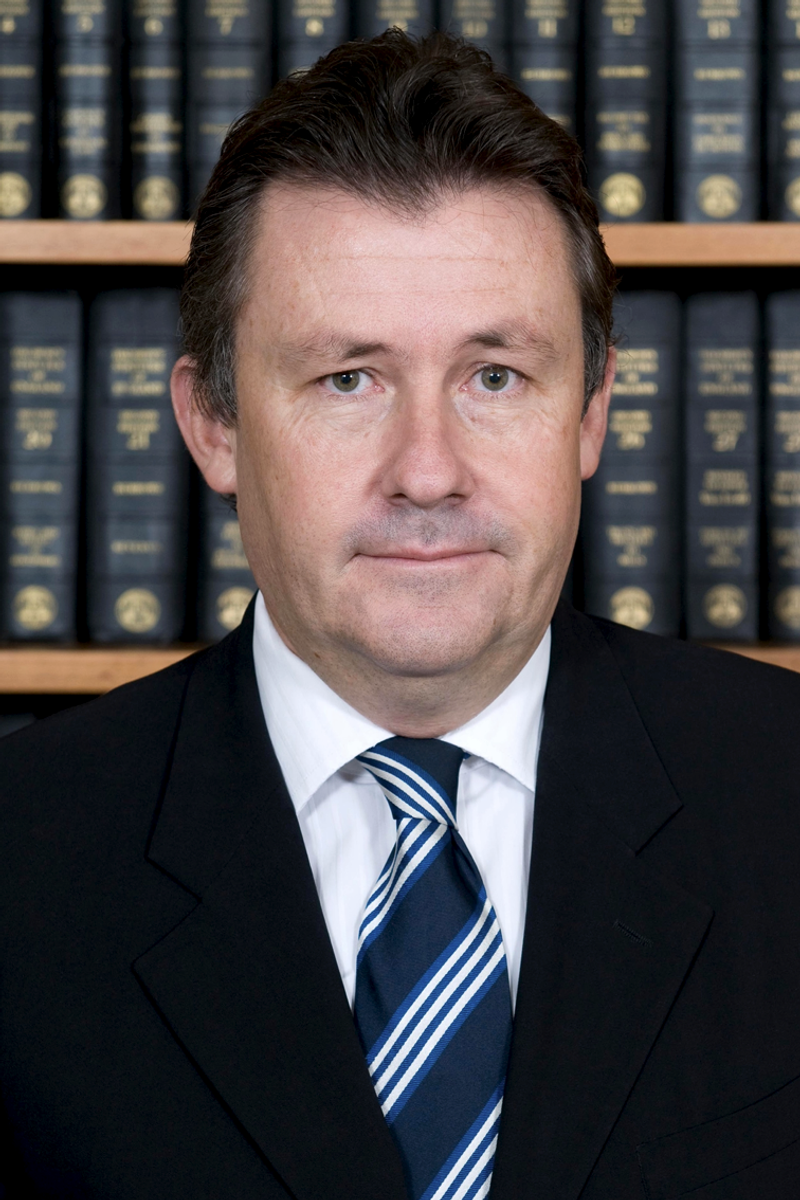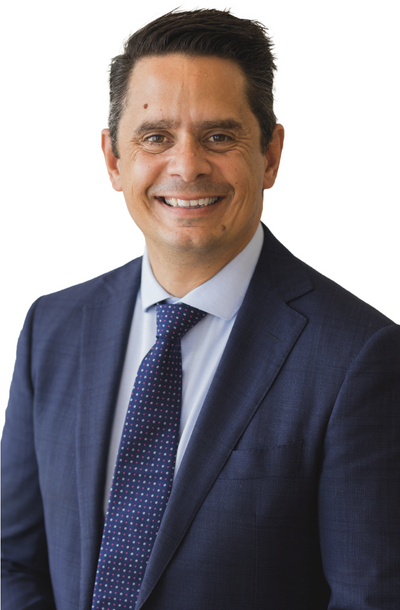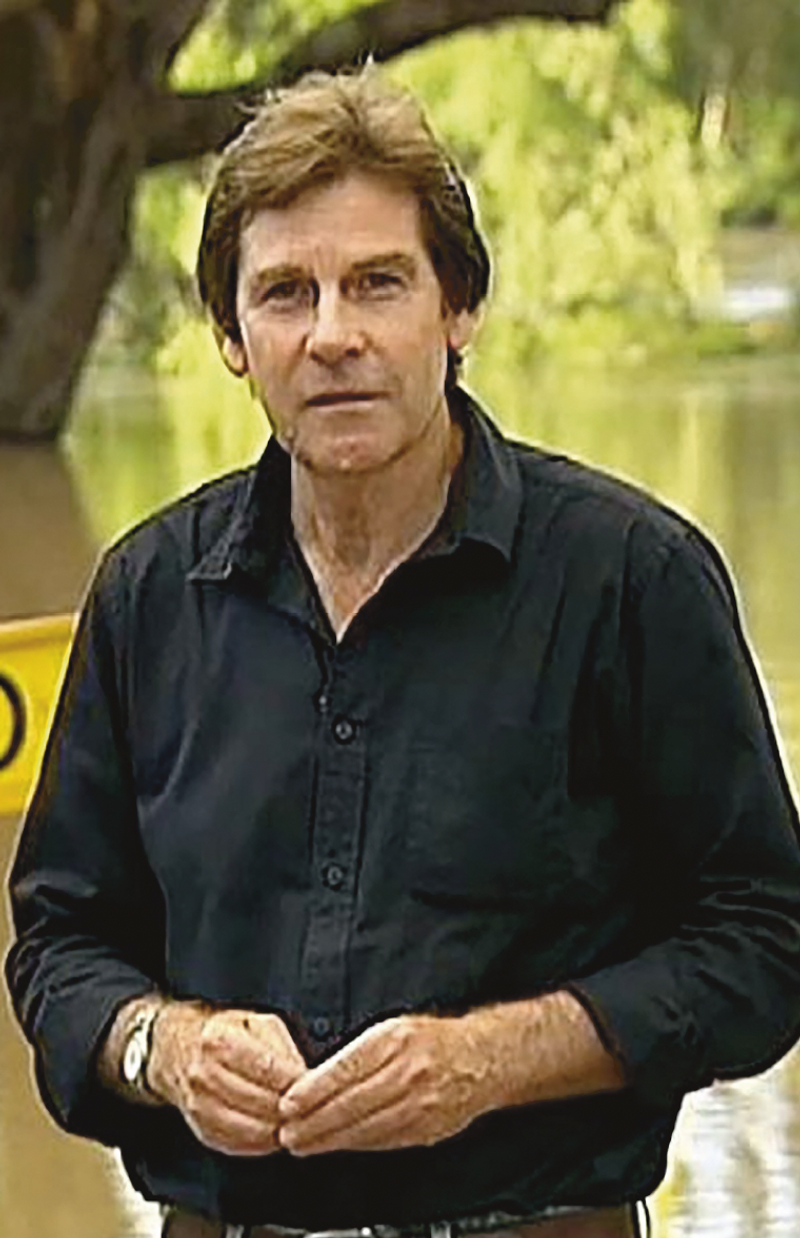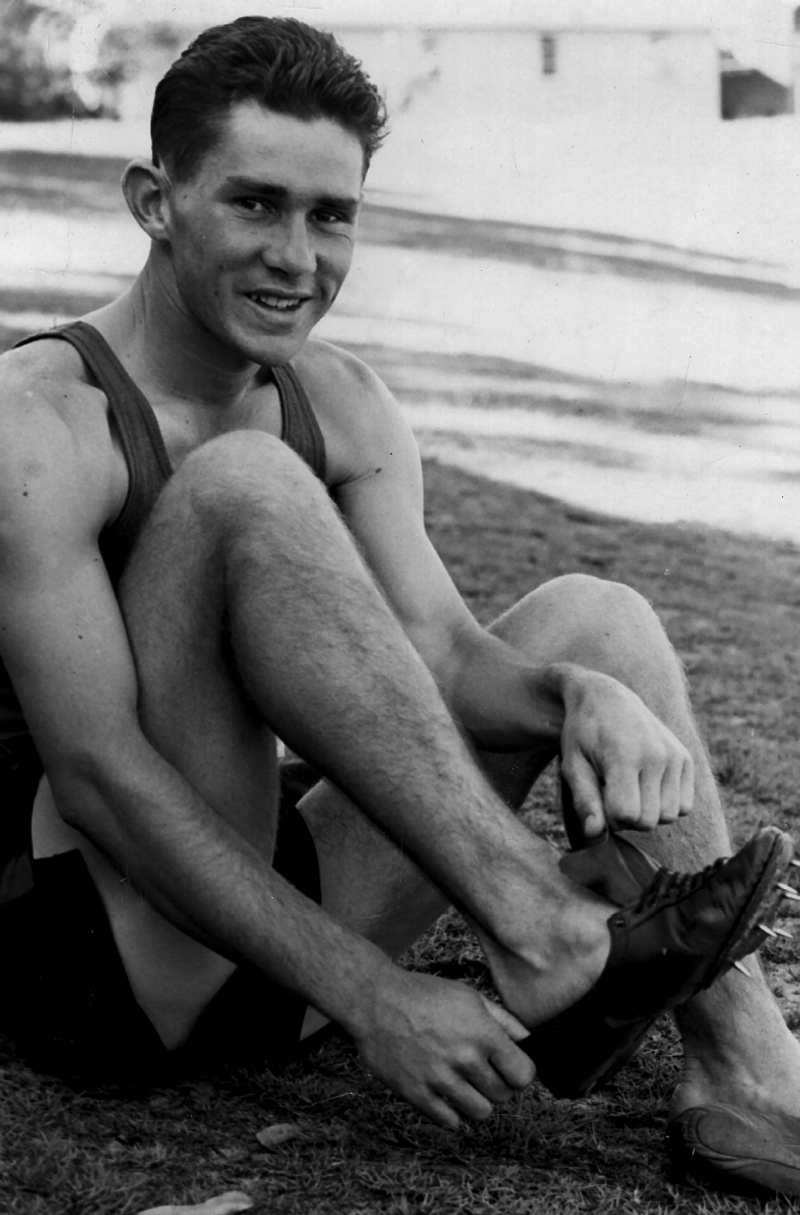Contact
Class of 2024 celebrates their Aquinian bond
Eighty young Old Aquinians were delighted to collect their 2024 yearbook at the Bicton Palmyra RSL Hall on Wednesday evening, where they enjoyed catching up with one another and reminiscing about the highlights of their final year at the College.
Hosted by the Old Aquinians' Association, the members of the Class of 2024 greeted each other with firm handshakes and brotherly hugs, and there were happy faces all around as they enjoyed flicking through the annual publication that was fresh off the printing press.
The past students were joined by several teachers for the special occasion, including Emma Fletcher, Heather Wilson, Lauranne Woodhouse, Samara Pass. Head of Senior School John Van Dyk and Principal Rob Henderson.
Chris Colalillo (2008), Julian Gardner (2008) and Anthony Meo (2016) represented the OAA committee, reminding the young men they will always be Aquinians and to keep their details up to date for future reunions and events.
Formalities included Chair of the Aquinas Foundation, Mr Michael Prandy (1981) presenting the 2024 College Council Captains with a Bursary Plaque, commemorating the funds raised that go towards supporting the Aquinas education of a Year 11 student whose family is experiencing financial hardship.
The plaque will take its place in the Heritage Room, joining the ranks of previous life-changing fundraising efforts over the years that are at the heart of an Edmund Rice education.
The young men enjoyed dinner supplied by Steve and the team from the Boarding Kitchen, who transported a lavish hot meal to the venue, while Old Aquinians, Declan McGoldrick and Michael Canci (both 2021) served behind the bar.
The evening wound up with promises to keep in touch, and the long-lasting friendships of the Old Aquinians who were present is a testament to the strength of the Aquinas bond.
Once an Aquinian, always an Aquinian.
Ross Brown
Class of 1998
Whether you are rowing a boat or brewing a beer,
balance is vital according to Ross Brown. The rowing World Champion and Head Brewer thrived during his time at Aquinas College. Ross was a strong student, college Vice Captain, an exceptional cross-country runner and an outstanding rower.
Ross’ father Ray, a teacher, boarding house master and coach at Aquinas, was one of the great influences on his life. Ray, a tough Kiwi from Hawkes Bay, would lead by example and regularly outpace the Year 12s on the athletics and cross-country track. He brought great enthusiasm, empathy and determination to all he did, qualities he passed onto Ross.
Ray also gifted young Ross a brewing kit for his 17th birthday, unearthing a passion that was to become Ross’ career.
Following his time at Aquinas, Ross commenced his studies at Murdoch University, earning a Bachelor of Sciences in Biotechnology in 2003, followed by a Post Graduate Certificate in Micro-Brewery Management from Edith Cowan University in 2004 and a Diploma in Brewing at the prestigious Institute of Brewing and Distilling (London) in 2017.
During his undergraduate studies, Ross secured a scholarship at the Western Australian Institute of Sport in 2001 and was an outstanding athlete for the next decade, winning six World Championship medals, four national titles in the Penrith Cup event and 18 consecutive State Championship titles for Swan River Rowing Club.
In 2002, Ross won silver in the Lightweight Pair at the
World Rowing U23 Championships in Genoa, Italy and gold
the following year in the Lightweight Four event at the U23 Championships in Belgrade, Serbia. A major achievement in Ross’ rowing career was his role as reserve for the Australian rowing team at the 2008 Beijing Olympics, but the highlight of his sporting career was claiming gold with the Lightweight Eight crew at the 2011 World Championships in the incredibly beautiful Lake Bled in Slovenia.
Ross’ first job in brewing came as the Student Brewer and Microbiology Technical Officer at the Swan Brewery in 2008. His big break in brewing came in 2013, when Gage Roads hired him as a Shift Brewer. Ross now leads an around-the-clock team as the Head Brewer at Gage Roads, where he oversees all brewing and packaging operations.
Ross fondly recalls the camaraderie from his days at school: “At Aquinas there was such a tradition of success and a real feeling that when you put on the red and black singlet you had this “lift” from the guys who had poured their heart and soul into the sport previously.”
Rowing, like brewing, is about balance and precision, but Ross credits rowing as the ultimate team sport, teaching the importance of synchronicity and camaraderie. Rowing puts people through real pain and stress, and you need to find your rhythm with your teammates - no single person can win the race, so you need to create a space where everyone can operate at their best. This teamwork, mentorship and the strong relationships formed in rowing have propelled Ross both on and off the water.
Gordon L’Estrange
1939 - 2018
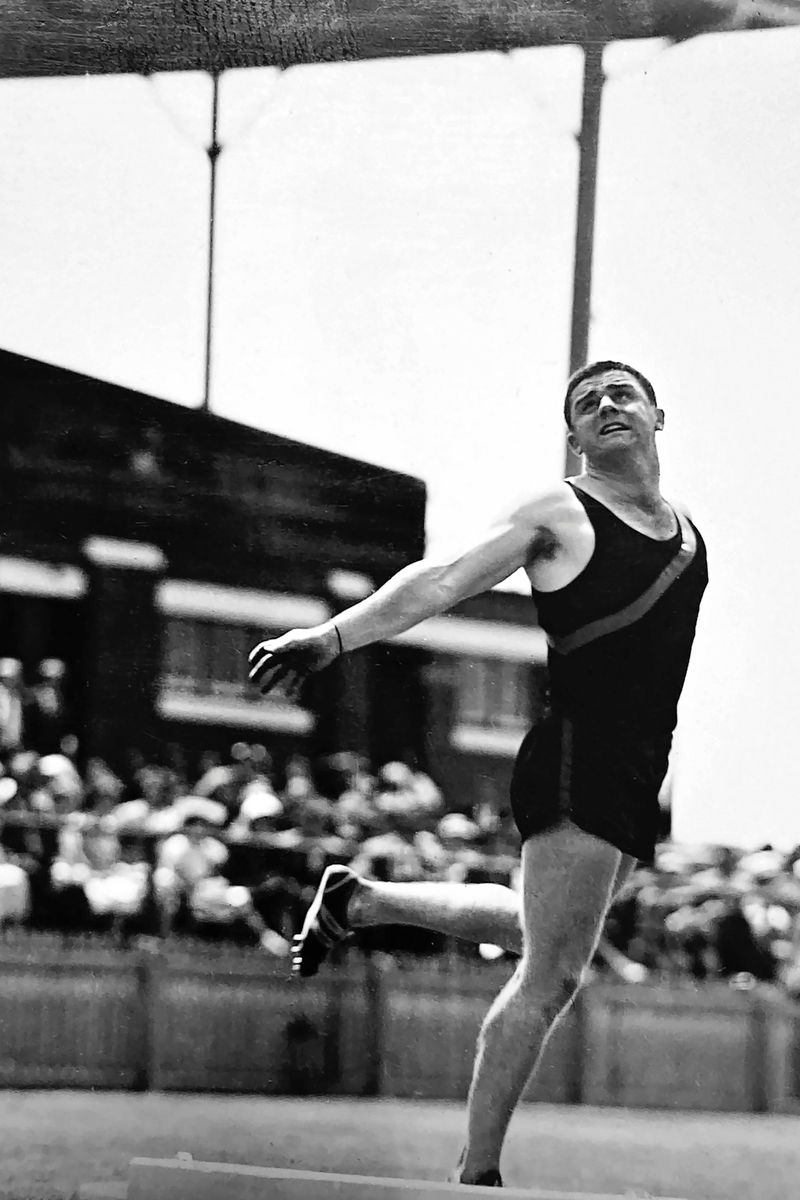
Class of 1958
Gordon’s love of Aquinas and his successful involvement in many aspects of college life paved the way for his approach to life. He attended Aquinas from 1955-58 and was regarded as an outstanding sportsman. At his funeral in November 2018, his good friend and four-time Olympian and Sport Australia Hall of Fame member, Tom Hoad stated that “Gordon was arguably the best all round sportsman the college had produced.”
He was college open swimming champion three times in the late fifties and in two of them also PSA open swimming champion. As a schoolboy he was a member of the WA State open swimming team making the 1956 Olympic Trials and held numerous WA State open swimming records. He was also an outstanding rower and member of two 1st VIII crews in 1957 and 58. In athletics he was College 220 yards champion, a member of two winning Alcock Shield teams, and equal college all-round champion. In 1958 Gordon broke the PSA open shot-put record by almost two meters, and held the Aquinas open record for 25 years. He was also a member of winning PSA 1st XVIII Football and 1st XI Hockey teams, and the State championship winning cross-country team.
Post Aquinas he was an accomplished teacher-coach. He competed in State A-grade athletics, swimming, water polo, hockey, played country league AFL football and competitive surf lifesaving. Gordon graduated as a physical education teacher, and went on to be Churchlands Senior High School’s inaugural sports master. His love of sport, and growing youth talent, saw him coach numerous school and club amateur teams across multiple disciplines. Including two WA state schoolboy AFL football sides, taking them to the national championships.
Gordon was equally talented off the field. He went back to college and studied fine-arts, and eventually taught it. Swimming though was his first love and he established the Blue Marlin Swimming Team before setting up an indoor learn-to-swim business, from which he taught and coached hundreds of boys and girls taking many to state and national swimming championships. He was awarded the National Sports Medal in 2000 in acknowledgement of his amazing contribution to sport.
Gordon valued his connection to Aquinas throughout his life. He was an assistant coach to teams in the sixties and college swimming coach in the seventies. Right up until his death in 2018, he would be seen, walking stick in hand, on the Memorial Oval, watching the 1st XVIII or providing tips to aspiring shot put champions. He loved the school and valued what it gave him. Watching the next two generations: Sean
in 1977-85 and then his grandsons James and Will begin their journeys here were proud moments for this hugely talented and proud Aquinian.
Judge John Prior
Class of 1979
When John was at Aquinas he studied and played hard before becoming one of the most well-known and well-liked members of the judiciary in WA. He excelled at Drama, debating, film and other creative arts under the tuition of Juliana Hammond. Left to
his own devices he would have pursued a career
in journalism but Brothers Kevin Paul, Carey and O’Loughlin were influences on him and had other ideas directing him to Law instead. John is the adopted son of an Old Aquinian and farmer Brian Prior from Moora.
After graduating in 1979 he read Law at UWA graduating with a Bachelor of Jurisprudence and
Law in 1984. He completed his articles at Talbot and Olivier the same year and was admitted as a barrister and solicitor of the Supreme Court and also to the Federal Court and High Court of Australia. He worked in civil, criminal and commercial litigation, family law, mining law and property. However, rather than pursue partnership at the firm he chose to travel taking a
late “gap year” and spent 18 months in the early 90s away, six of them working in well-heeled hotels of the famous ski resort, Whistler, Canada. There he met all kinds of people and made quite an impact as the most articulate and qualified doorman the luxury resort had ever seen.
He returned to Perth joining top legal firm William Ellison in 1991, at the invitation of Chris Ellison quickly making partner, and ran a barristers’ practice. Admitted to the Bar in 2006, John joined Francis Burt Chambers. His reputation as a lawyer has grown with his career and he has handled many difficult, high profile cases such as that of Jemma Lilley.
Most recently, Judge John was appointed to
the District Court in March 2018. He has also been President, Treasurer and Secretary for the Criminal Lawyers Association. John is married to Suzy Morrison and they have two sons Tom 23 and Jonathan 19.
An animated Dockers fan: it was noted at his welcome ceremony to the District Court that watching the Dockers on television was not as entertaining as
“watching His Honour watch the Dockers!” John was a keen sportsman both at school and later in life, coaching football and playing hockey.
Looking back he remembers “the Brothers treated everyone equally”. They lived by the ethos “everyone is created equal, and they deserve an equal opportunity”. It has been said of Judge John: “No cause was ever a lost cause”.
Chris Back
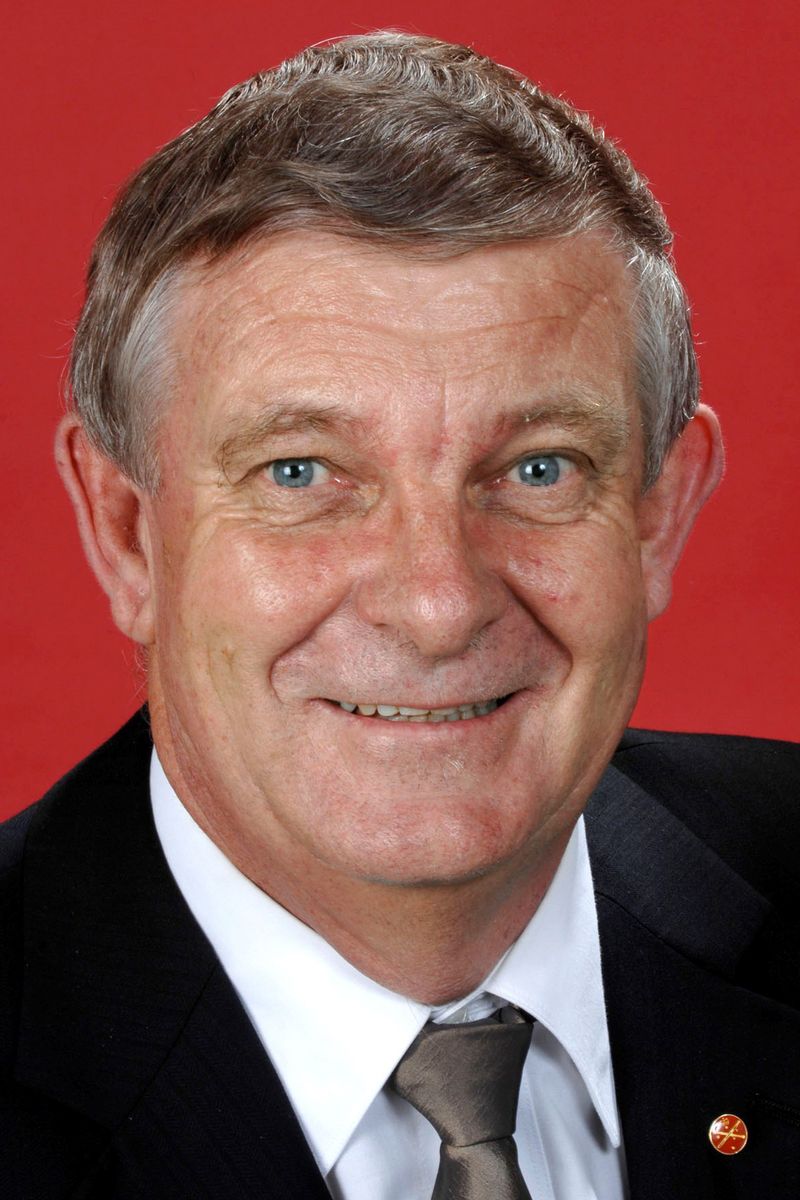
Class of 1966
Christopher John Back was born in 1950 in Perth and commenced his studies at Aquinas College in 1962.
From there, he successfully embarked on a Bachelor of Veterinary Science at the University of Queensland, graduating in 1971.
His first posting as a veterinary surgeon was with the Department of Agriculture WA, where he was posted to Merredin, followed by Moora. He then moved to Melbourne and joined a private practice specialising in equine medicine.
On his return to WA, Chris commenced a long career in education at Curtin University (Muresk Institute) from 1975 to 1988. During this period he spent time at the University of California, Davis working in the Department of Equine Reproduction. On his return to the Muresk Institute, Chris developed Australia’s first tertiary course in Equine Management. Graduates were in keen demand both in Australia and overseas.
In 2012, Chris was awarded the Kendall Prize by the Australian Veterinary Association for his service to the profession.
In a change of career direction, Chris was appointed the inaugural Chief Executive Officer of the Rottnest Island Authority where he served for seven years, in the mid 1990s. His next professional position was CEO of the Bushfires Board of WA. He introduced the use of water-bombing aircraft and radically upgraded the equipment used by the Volunteer Brigades. He also received the Prime Minister’s Gold Award for Technological Achievement which recognised the development of the use of satellites in tracking wildfires in remote locations.
Chris’ next role was in Tasmania where he became the Managing Director of the wholesale and retail businesses of the Shell company in that state. This served as his introduction to the oil and gas industries where he worked in Australia, South East Asia, India and the Middle East, servicing oil majors and military clients.
Chris’ final career change was in 2009 when he was appointed to the Australian Senate where he served until 2017. During his service in the Senate, Chris was Deputy Whip of
the Senate, Chair of the Senate Committee for Foreign Affairs, Defence and Trade, Temporary Chair of Committees, and an active member of committees such as Education, Employment and Workplace Relations, Rural and Regional Affairs and Transport, Environment and Communications, and Economics.
Other issues he was involved in whilst in the Senate included gambling reform, the National Capital and Territories, migration, the Parliamentary Library, and Australian treaties.
Eric Silbert DFC AM
1922 - 2007
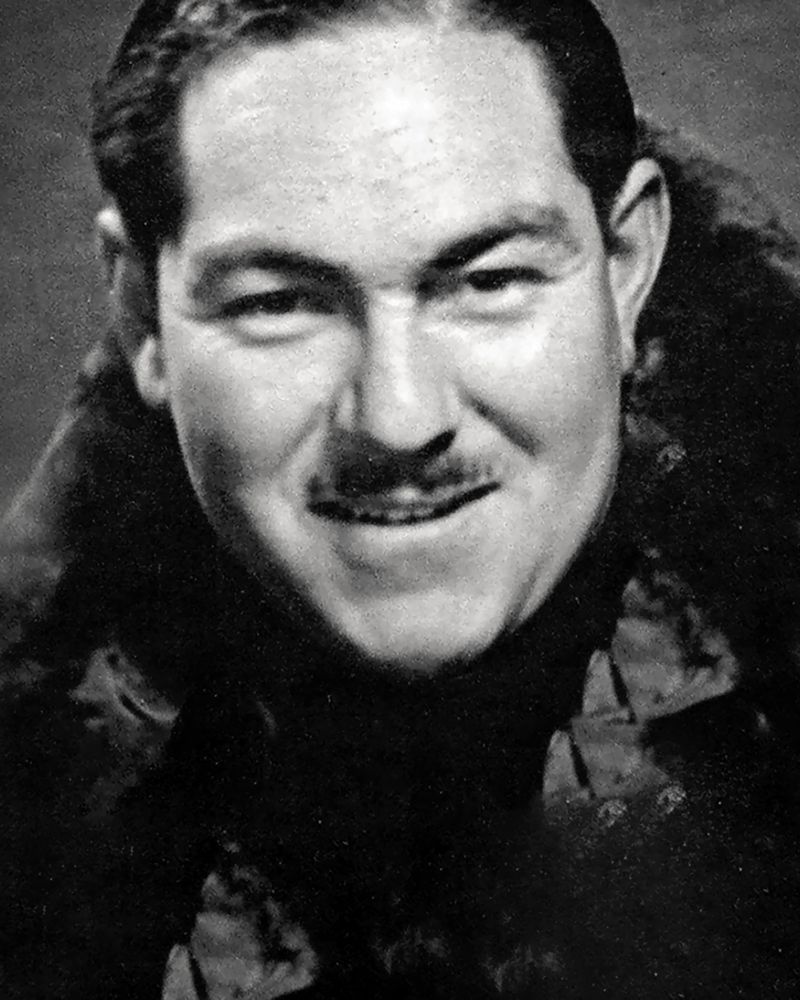
Class of 1938
Eric’s parents were both well-known in their fields. His father Berel, better known as “Barney” Silbert ran Fremantle’s most famous shoe store. His mother Minnie Masel, also worked in the family business and was one of WA’s earliest and best known violinists. Eric was born in the front room of 55 Ellen Street, Fremantle and so first went to CBC, a few doors down and later, Aquinas College as a boarder. Times were very hard. Eric remembers the Great Depression of 1932 and people knocking on the door asking for a meal. He enjoyed his education but was aware having parents in the retail footwear business meant he was not expected to excel academically as it was usual to join the family firm. Although not a scholar he was a strong sportsman and an outstanding ballroom dancer.
As a young Jewish boy Eric followed the unfolding of tragic events in Europe throughout his adolescence. After a trip to Singapore with the YAL, he worked with his parents in the family business until he signed up for the war at the tender age of 18. He departed on board a ship as one of 50 bound to train for Pathfinders, the target-marking squadrons in RAF Bomber Command during World War 2. Their task was to mark the targets for the RAF Bombers to help increase their accuracy. Eric was the only one onboard the departing ship to return alive.
It was a brutal war for such a young person. He remembers “You always knew when you’d lost a plane full of mates, their names were wiped off the board. But you kept flying.” He said of his missions in a recorded interview: “I was petrified. You know, anyone who tells you they weren’t frightened on operations where people were firing at you and flak was exploding around you and searchlights were on, they’re a moron not to be scared”.
Eric changed his middle name to Adrian four years before being commissioned as he thought going into the field with the middle name Abraham wasn’t such a good idea. He also changed the religion on his ID card from Jewish to Anglican, but changed it back on his return at the young age of 23.
Eric was an outstanding airman and much loved by his peers. He flew a total of 50 operations (two tours) with 622 Squadron and was awarded the Distinguished Flying Cross. More than half those who flew in the Second World War were killed in action. Less than a quarter survived. Eric was one.
Having been chosen to live, he decided he would serve the community. On his return as well as working in the family business he became Deputy Lord Mayor of the City of Perth, and was the Founder and President of Temple David, the family synagogue; a member of the Fremantle Rotary Club, and awarded the Order of Australia.
His daughter Hilary, herself a hugely active member of the Jewish Perth community remembers:
“I heard an interview by Dad on his time as a Pathfinder in WWII, which suddenly enlightened me on why he was in so many organisations as a volunteer. He said that there was such a high chance of being killed that if he was saved, he would serve the community. And he did. All his life.”
The Hon Ben Wyatt, LLB, MSc, MLA
Class of 1991
The Wyatt name has become synonymous with indigenous affairs at the state and federal level. Ben Sana Wyatt, son of Cedric and Janine Wyatt, was born in Wewak, Papua New Guinea and grew up in the goldfields of Laverton and Kalgoorlie. He studied at Aquinas College from the age of 14 and finished with the Staff Award for General Excellence in 1991. He was a very well-known and popular student who threw himself into all aspects of college life from the cadets to the annual drama production.
Ben read law at the University of Western Australia and went on to graduate from Duntroon Military College. At university, he found politics as “a young aboriginal man trying to be normal” and wanting to establish his own credentials independent of originality. His parents were politically active and he was drawn to it after spending five or so years in practice at Phillips Fox. Ben served as counsel for the Director of Public Prosecutions. He continued his study and holds a Master’s Degree with distinction from the London School of Economics.
But politics was calling and when he stood in 2006 for Victoria Park in a by-election triggered by the resignation of former Premier Geoff Gallop, it was his moment. Ben was elected to the Legislative Assembly and has served WA for more than a decade in an area he lived in for more than twenty years.
Ben was appointed Australia’s first Indigenous Australian Treasurer in March 2017 and also held the position of Minister for Finance, Aboriginal Affairs and Lands. He was largely credited with being well on the way to turning the finances of WA around in the two years following the victory over Colin Barnett’s government. This also meant that the portfolio of Aboriginal Affairs was held by Wyatts at both state and federal level: Ben’s father being a cousin of Ken Wyatt AM MP, Federal Member for Hasluck.
Someone who remembers Ben well from Aquinas describes him as “quite self-assured and centred, confident but not brash and very humble. He was very happy to be part of the crowd and not wishing to attract attention to himself.”
In standing down from WA politics in 2021 Ben cited the need to spend more time with his wife and young daughters, Ben said that being Treasurer of Western Australia was: “something I never would have imagined when I was at school.” Covid 19 forced him to rethink and fortunately for WA he has decided to remain in the role of Treasurer. Premier McGowan says of Ben: “He has done an exceptional job as Treasurer. It’s a marvellous story and something that all West Australians should be very proud of”.
Paul Lockyer
Class of 1967
As a senior television journalist, Paul Lockyer’s work was widely seen and respected by viewers across the country and beyond. Very sadly he met an untimely death at the age of 61 in an air crash at Lake Eyre while on a story for the ABC.
Paul came to Aquinas College from Corrigin where his parents Nona and Norman Lockyer ran a farm. They brought him to board at Aquinas in 1963 and apart from the usual adjustment period Paul loved his time at school and showed his sons around it with pride years later. Paul excelled at hockey and was vice-captain of the team the year he left. He was a cadet in 1965-67 and was a member of the YCS, the Legion of Mary and Veritas. He also played a lead part in the Musical Oklahoma in 1966, the songs of which stayed with him for years to come according to his sons.
Within two years of leaving school, Paul secured a highly-prized cadetship with the ABC. He began a stellar career spending time in Sydney and Canberra before being promoted to a correspondent in Port Moresby, then working in Jakarta and Bangkok. His reporting during the Vietnam War was rated highly and he was responsible for bringing the truth of the Khmer Rouge killing fields to our screens.
Paul was posted to Washington DC during the Reagan administration and also covered central and North America. He returned to Asia and received accolades for his coverage of the trial of drug-traffickers Kevin Barlow and Brian Chambers, nominated for a Gold Walkely for his coverage.
He moved to the Nine Network and was a senior correspondent in many fields covering droughts for A Current Affair and working on Sunday, Midday, and the Wide World of Sports. He won a Logie Award for Most Outstanding News Reporter in 2001 for his coverage of the Olympic Games.
Paul returned to the ABC to become an anchor for the WA news. But he will be remembered mostly for his coverage, and love, of the land. One of the marks of the man is the great camaraderie he shared with his working colleagues. Household names from the ABC lined up to pay tribute to his work in 2011 when he was killed in a helicopter crash at Lake Eyre.
Paul was an Aquinian through and through. He helped to build the Chapel wall made from Mt Barker stone and was married at Aquinas. His son paid a loving tribute to him: “…not just for being a respected journalist who got so much out of people, but also a man of the land. More importantly as a brilliant father and the most beautiful kind man you could ever come across.”
Murray Ward
Class of 1954
The memory of Murray Ward is still fresh in the minds of Aquinians old and new. He touched so many generations. His peers at the College in 1954 remember him as an outstanding sportsman: he was Captain of the 1st XVIII, winner of Best and Fairest Footballer, Athletics Captain, Vice-Captain of Cricket and Prefect to boot. Academically, he also excelled winning the History and Geography Prizes. He was a member of both the shooting and swimming teams, Murray also broke the Australian Junior Hurdles record while at Aquinas College.
Four years later, he was a member of the winning WA medley relay team at the Australian Athletics. Possibly as a reward for his long list of achievements, he and Neville Salt were chosen by Br Murphy to go to Canberra to greet Queen Elizabeth II during her tour of Australia that year.
He played for the Claremont Football Club throughout the 1950s and 60s. As Director of Football at Claremont, he also saw the club win the Premiership in 1981 and contest the final in 1982 and 1983. In short, wherever he was in sport, success followed. However, he never really left Aquinas and continued to coach boys for 45 years. During this time, the school won 27 Interschool Athletics championships. He also coached the 1st XVIII Football team for a decade in the 1970s, during which time the school won the Alcock Cup seven times!
Those who knew him whisper Murray’s name in awe. The selflessness of the man is legendary. It was his way to do the work, train hard, win the game and go home. He never stayed for the celebration or the press photo. As far as he was concerned when the team won the job was done, leaving the glory of the after-party to those younger and fitter. It seemed, there was as much pleasure in helping the next generation to win as there had been for him in winning in the first place.
His Headmaster Br Murphy commented in his final year Annual: “Not only have Murray Ward and Neville Salt shown outstanding sporting ability but their manly bearing and excellent leadership have been immense value in maintaining a high standard of conduct and a good moral tone amongst the boys.”
At his funeral in November 2016, many spoke of his faith: he was president of the Holy Name Society and lived his faith from an early age. He also helped reintroduce the Rosary on a Tuesday morning at Aquinas College and rounded up a number of Old Boys to support it – a faith tradition that continues today for students each week.
